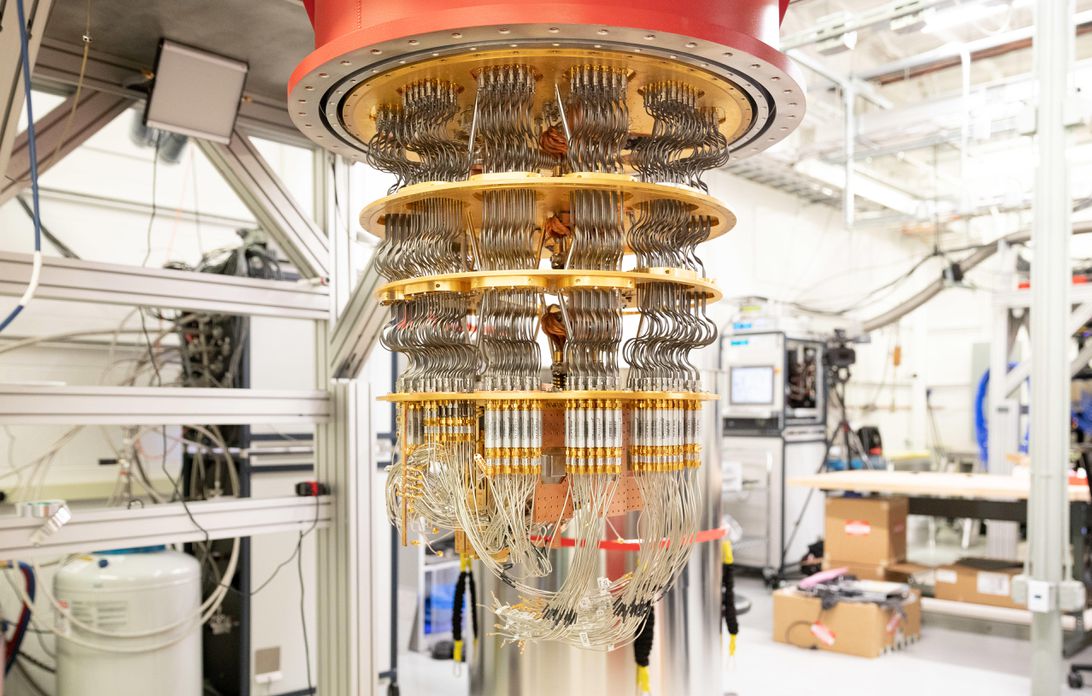
After decades of experimentation, billionsdollars of investment around the world and uncertainty about success, researchers still proved that a quantum computer can work more efficiently than traditional ones. Previously, Google published an article in the scientific journal Nature, in which it announced the development of a revolutionary computing model and the achievement of quantum supremacy.
New Horizons
First of all, quantum computers could make widely used encryption codes obsolete, which encourages some financial institutions andinstitutions to develop protective algorithms of the newtype. In addition, the technology will help to solve a lot of business problems related to the optimization of individual organizational processes and the entire company’s activities.
The potential of these devices is so huge thatin a few minutes it will allow you to find answers to questions that are beyond the power of traditional calculation methods, or solve problems that no one even realizes now.
For example, how to avoid energy loss duringits passage through power lines, how to use nitrogen in the air to create fertilizers for plants, or to determine which molecules need to be combined in order to receive new vital medicines without wasting time and money for years of laboratory research without any guarantee of success.
All these problems are united by their complexity and the secrets of the amazing interactions of the subatomic world. It is here that the bizarre logic of quantum mechanics comes into play.
The strangeness of quantum computing
The fact is that in quantum mechanics the ruleswhich we are used to and can observe around, for example, the laws of physics described by Newton do not work. In our world, objects are in a certain state, position and move in a specific direction. For classical calculations, this means that the basic unit of information (bit) can be only 0 or 1.
Strange rules of quantum mechanics allowelementary particles, such as electrons or photons, do not have a simple, definite state. That is, they can simultaneously be a wave field and matter, have an infinite number of possible positions at any given moment in time, disappear without a trace from one place and immediately appear in another.
It is these features of particles that are used in quantum transistors, which are the main components of computing devices.

However, the Google team decided to go further andcombine quantum mechanics with information technology. This allowed researchers to get a combination that, they said, instead of just pointing up or down (0 or 1), can display each point in any direction around the sphere. Such a multi-tasking system can simultaneously process much more information.
Being in entangled states, quantum bits (qubits) can interact with each other, which allows them to be combined to solve specific problems.
Moreover, unlike a classical computer,which methodically works its way to the answer through two possible quantities, the quantum rushes chaotically in search of a suitable result until it reaches the goal. Therefore, during this process, minor miscalculations and deviations may arise, which gradually accumulate and can lead to errors, which today is one of the main problems of technology. However, scientists are already developing methods to combat errors.
Quantum uncertainty
Most likely, your next smartphone will not use quantum computing, but over the next decade they can gradually penetrate our daily lives.
The truth is, no one else knows exactly howthis technology will change the world. The effect can manifest itself in new engineering approaches, unexpected chemical formulas, ways to solve the problem of climate change or increase energy efficiency.
Researchers themselves cannot yet predict in which directions quantum computers will work better than traditional ones, because they cannot foresee all possible aspects.
</p>




